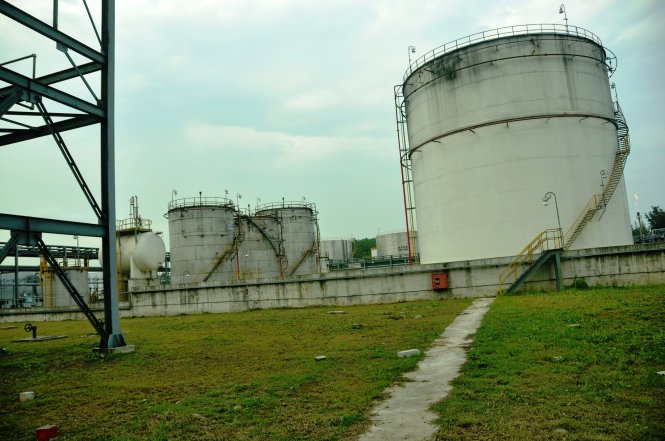Output difficulties shut down multi-million dollar ethanol factories

As of now, PetroVietnam’s ethanol factories in the northern province of Phu Tho and the southern province of Binh Phuoc have stopped operations and the fate of the bio-ethanol Dung Quat factory, will be decided in the coming shareholders’ meeting.
Notably, the $85.1 million bio-ethanol Dung Quat factory in the central
Another PetroVietnam interest, Binh Phuoc ethanol factory, which started operation in 2009, had to be closed down after completing its trial run due to a shortage of raw materials, despite being located near a cassava cultivation area.
According to a representative of the Binh Phuoc Department of Trade and Industry, the ethanol factory has not been operational for a long time without giving public notice. The enterprise has yet to report the authorities the nature of its difficulties, leaving them unable to supply adequate solutions.

Furthermore, the construction of Phu Tho ethanol factory, kicking off in June 2009, stopped in mid-2012 due to financial problems.
Pham Van Vuong, director of Central Petroleum Bio-ethanol JSC, said that according to the government roadmap, the transition to bio-fuel was to begin in December 2014 for motor vehicles in the seven cites and provinces of Hanoi, Ho Chi Minh City, Haiphong, Danang, Can Tho, Quang Ngai, and Ba Ria-Vung Tau. From December 2015, it was to be extended to the rest of the country. However, with the exception of Quang
Furthermore, manufacturing costs stand at around VND15,000 per litre, higher than the price of petrol on the market, leaving the E5 fuel unpopular amongst customers.
Oversupply forced the factories to stop operation. Notably, the total consumption of E5 fuel is 2,000 cubic metres per month, equalling 24,000 cubic metres annually, while the total capacity of PetroVietnam’s three factories are 300,000 cubic metres per year.
These enterprises also had plans to export ethanol products to deal with their oversupply problems, but failed to compete with
A representative of PetroVietnam said that, while enterprises have difficulty in manufacturing and consuming products, the state has yet to issue preferential policies, such as an effective price control mechanism. Besides, the local authorities have yet to apply coercive measures for consumers in cities and provinces to buy E5 fuel.
According to the government’s latest roadmap, all oil and petrol retailers in the eight largest cities and provinces, as well as 50 per cent of the remaining oil and petrol retailers must buy E5 fuel instead of RON 92. However, experts assessed that the target would not be realised unless the state issued preferential policies.
What the stars mean:
★ Poor ★ ★ Promising ★★★ Good ★★★★ Very good ★★★★★ Exceptional
Latest News
More News
- Site clearance work launched for Dung Quat refinery upgrade (February 04, 2026 | 18:06)
- Masan High-Tech Materials reports profit: a view from Nui Phao mine (February 04, 2026 | 16:13)
- Hermes joins Long Thanh cargo terminal development (February 04, 2026 | 15:59)
- SCG enhances production and distribution in Vietnam (February 04, 2026 | 08:00)
- UNIVACCO strengthens Asia expansion with Vietnam facility (February 03, 2026 | 08:00)
- Cai Mep Ha Port project wins approval with $1.95bn investment (February 02, 2026 | 16:17)
- Repositioning Vietnam in Asia’s manufacturing race (February 02, 2026 | 16:00)
- Manufacturing growth remains solid in early 2026 (February 02, 2026 | 15:28)
- Navigating venture capital trends across the continent (February 02, 2026 | 14:00)
- Motivations to achieve high growth (February 02, 2026 | 11:00)
















 Mobile Version
Mobile Version